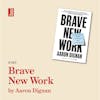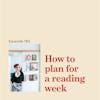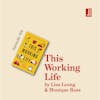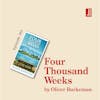Blink by Malcolm Gladwell: the power of not thinking
Sign up to the bookmark newsletter:
https://mailchi.mp/1119b1358a84/thebookmark
About the Author
Malcolm Gladwell is the author of five New York Times bestsellers–The Tipping Point, Blink, Outliers, What the Dog Saw, and David and Goliath.
He is also the co-founder of Pushkin Industries, an audio content company that produces the podcasts Revisionist History, which reconsiders things both overlooked and misunderstood, and Broken Record, where he, Rick Rubin, and Bruce Headlam interview musicians across a wide range of genres. Gladwell has been included in the TIME 100 Most Influential People list and touted as one of Foreign Policy‘s Top Global Thinkers.
Source: https://www.gladwellbooks.com/landing-page/about-malcolm-gladwell/
Click here to buy on The Book Depository
https://www.bookdepository.com/Blink/9780141014593/?a_aid=stephsbookshelf
About the Book
Blink is a book about how we think without thinking, about choices that seem to be made in an instant–in the blink of an eye–that actually aren’t as simple as they seem. Why are some people brilliant decision makers, while others are consistently inept? Why do some people follow their instincts and win, while others end up stumbling into error? How do our brains
really work–in the office, in the classroom, in the kitchen, and in the bedroom? And why are the best decisions often those that are impossible to explain to others?
Blink reveals that great decision makers aren’t those who process the most information or spend the most time deliberating, but those who have perfected the art of “thin-slicing”–filtering the very few factors that matter from an overwhelming number of variables.
Source: https://www.gladwellbooks.com/titles/malcolm-gladwell/blink/9780316172325/
I read a quote from Malcolm on why he wrote Blink, he said; “to demonstrate that decisions made very quickly can be every bit as good as decisions made cautiously and deliberately; to help decide when we should and shouldn’t trust our instincts; and to show that snap judgments and first impressions can be educated and controlled.”
Links
Check out Malcolm’s Revisionist History podcast – http://revisionisthistory.com/
If you liked this episode, you might also enjoy the summary of Outliers, also by Malcolm Gladwell
BIG IDEA 1 (4:28) – Find the right thin slice of information
This is about pattern recognition “the ability of our unconscious to find patterns in situations and behavior based on very narrow slices of experience”. What are those important bits of information and what can be ignored?
Thin slicing is a key principle in the book and is the reason why some people make good ‘split’ decisions – a lot of this is down to the fact that they’re picking the right ‘slice’ of information to assess – just the important bits.
This was brought to life in the work of John Gottman in analysing married couples to assess if they would stay together or get divorced. There were certain ‘thin slices’ (such as contempt and a ratio of less than 5:1 positive:negative interactions) which were sure signs of relationship failure.
Other studies such as one where strangers had to analyse the personality of someone by looking in their dorm room, and a study on doctors’ tone of voice with a patient as an indicator of whether they would get sued, were other examples of the power of the right ‘slice’ of information as predictors.
BIG IDEA 2 (8:43) – The dark side of blinking.
When we pick the wrong piece of information to thin slice, we can end up making horrible decisions. A great example in the book was a Warren Harding, who essentially became President because he ‘looked’ like a great president. However, he turned out to be one of the worst Presidents that America has ever had.
A great quote from the book is “mediocre people find their way into positions of authority because when it comes to the most important positions, our selection decisions a less rational than we think.”
This still happens today – in the top 500 CEOs, almost 33% of them are over 6ft 2in. However, in the general male US population, only 3.9% of men are over 6ft 2in. This is a perfect example of how we look for appealing visible traits in people as a ‘thin slice’ of information to make unrelated decisions and judgements on.
BIG IDEA 3 (11:49) – Listen with your ears not with your eyes.
In the past, classical orchestras were sexist and believed you could only play a certain instrument if you were male and white. After a lot of protest, the orchestras changed the audition process to put screens up, so the judges couldn’t see the performer, and performers were given numbers rather than names.
As a result, female participation in US orchestras increased five fold. Which means that when people listen with their ears rather than eyes, they bring the right people for the job based on their skills.
It begs the question, in your personal or career, what are you doing or participating in that’s biased? Where are you thin slicing the wrong information? What assumptions are you holding on to which might not be the best predictors of the outcome you need?
Music By: The Future Is Now – Instrumental Version Song by MARLOE.
Let’s Connect
LinkedIn: www.linkedin.com/in/steph-clarke
Instagram: @stephsbizbookshelf
Enjoying the show?
Please hit subscribe so you don’t miss an episode and leave a review on iTunes to help others find us.
Listen to Other Episodes:
See omnystudio.com/listener for privacy information.
Hey, have you subscribed to the bookmark newsletter? If you liked this, you might like my twice-monthly email with book reviews and ideas of what you should be reading, and listening to, next. Click here to subscribe.
Popular episodes
Here are some great episodes to start with.

















